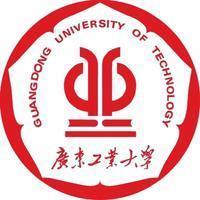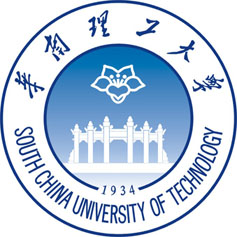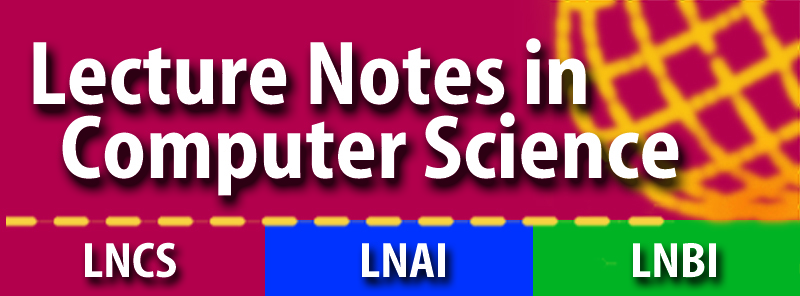ICONIP 2017 Plenary Lectures
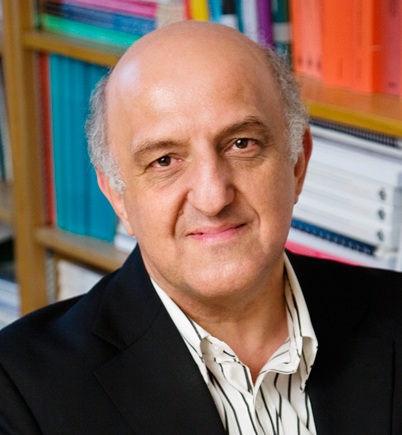
Tamer Basar received B.S.E.E. degree from Robert College, Istanbul, in 1969, and M.S., M.Phil, and Ph.D. degrees in engineering and applied science from Yale University, in 1970, 1971 and 1972, respectively. He joined the University of Illinois at Urbana-Champaign (UIUC) in 1981, where he is with the Department of Electrical and Computer Engineering, is the Director of the Center for Advanced Study, and carries the academic titles of Swanlund Endowed Chair, Center for Advanced Study Professor of Electrical and Computer Engineering, Professor at the Coordinated Science Laboratory, Professor with the Information Trust Institute, and Affiliate Professor at the Department of Mechanical Science and Engineering. He has spent sabbatical years at Twente University of Technology (the Netherlands; 1978-79), and INRIA (France; 1987-88, 1994-95). Dr. Basar has authored or co-authored over 750 publications in the general areas of optimal, robust, and adaptive control; large-scale and decentralized systems and control; dynamic games; stochastic control; estimation theory; stochastic processes; information theory; communication systems and networks; security and trust; and mathematical economics. His current research interests include stochastic teams and games; routing, pricing, and congestion control in communication networks; control over wired and wireless networks; sensor networks; formation in adversarial environments; mobile and distributed computing; risk-sensitive estimation and control; mean-field game theory; game-theoretic approaches to security in computer networks, including intrusion detection and response; energy systems, including the smart grid; social networks; and cyber-physical systems. Tamer Basar is a member of the National Academy of Engineering (of the USA). He was elected a Fellow of IEEE in 1983, and has served its Control Systems Society in various capacities, among which are: Past President (2001), President (2000), President-Elect (1999), Vice-President for Financial Affairs (1998), Vice-President for Publications (1997), the Editor for Technical Notes and Correspondence for its Transactions on Automatic Control (1992-1994), and as the general chairman (1992) and program chairman (1989) of its flagship conference (Conference on Decision and Control). He has also been active in IFAC (International Federation of Automatic Control), in the organization of several workshops and symposia, and as Editor and Deputy Editor-in-Chief of its flagship journal Automatica Automatica, from 1992 until 2003, and Editor-in-Chief and Chair of its editorial board from 2004 until 2014. During the period 1990-1994, he was the President of the International Society of Dynamic Games (ISDG) , and is currently the Series Editor of the Annals of ISDG (published by Birkhäuser), the Series Editor of Systems & Control: Foundations and Applications (published by Birkhäuser), the Series Editor of Static and Dynamic Game Theory: Foundations and Applications, an Editor of SpringerBriefs in Electronic and Computer Engineering: Control, Automation and Robotics, and Honorary Editor of Applied and Computational Mathematics. He is also on the editorial and advisory boards of a number of other international journals. He was the President of the American Automatic Control Council (2010-2011), Past President of AACC (2012-2013), and a member of the IFAC Council (2011-2014). Currently, he is the Chair of the Publications Committee of IFAC. Among some of the honors and awards he has received are (in reverse chronological order): IEEE Control Systems (Technical Field) Award (2014), Richard E. Bellman Control Heritage Award of the American Automatic Control Council (2006), Giorgio Quazza Medal of IFAC (2005), Outstanding Service Award of IFAC (2005), IFAC Fellow (2005), Center for Advanced Study Professorship at UIUC (2005), Hendrik W. Bode Lecture Prize of the IEEE Control Systems Society (2004), Tau Beta Pi Daniel C. Drucker Eminent Faculty Award of the College of Engineering of UIUC (2004), election to the National Academy of Engineering (of the USA) (2000), IEEE Millennium Medal (2000), Fredric G. and Elizabeth H. Nearing Distinguished Professorship at UIUC (1998), Axelby Outstanding Paper Award (1995) and Distinguished Member Award (1993) of the IEEE Control Systems Society, and Medal of Science of Turkey (1993).

Zong-Ben Xu,received his PhD degree in Mathematics in 1987 from Xi`an Jiaotong University, China. In 1998, he was a postdoctoral Research Fellow in the Department of Mathematics, The University of Strathclyde. He worked as a Research Fellow in the Department of Computer Science and Engineering from 1992 to 1994, and 1996 to 1997, at The Chinese University of Hong Kong; a visiting professor in the University of Essex in 2001, and Napoli University in 2002. He has been with the School of Mathematics and Statistics, Xi`an Jiaotong University since 1982, where he served as a professor of mathematics and computer science, Dean of Sciences (1997-2003), and VP of the university (2003-2014). From 2007 on, he was appointed as a Chief Scientist of National Basic Research Program of China (973 Project). and the Principle Scientist of Beijing Research Center for Mathematical and Information Sciences.
Professor Xu currently makes several important services for government and professional societies, including Consultant Expert for National (973) Program in Key Basic Science Research and Development (Information group), Ministry of Science and Technology of China; Evaluation Committee Member for Mathematics Degree, Academic Degree Commission of the Chinese Council; Committee Member in Scientific Committee of Education Ministry of China (Mathematics and Physics Group); Director of the Teaching Guidance Committee for Mathematical Education in Universities, the Education Ministry of China; Chairman of the Expert Evaluation Committee for Natural Science Foundation of China (Applied Mathematics group); Editor-in-chief of the Textbooks on Information and Computational Sciences, Higher Education Press of China; Co-editor of more tan 10 international journals.
Professor Xu has published over 280 academic papers on nonlinear functional analysis, optimization, intelligent information processing and machine learning, most of which are in international journals. His current research interests include sparsity modeling, machine learning and big data research. Professor Xu holds the title “Owner of Chinese PhD Degree Having Outstanding Achievements” awarded by the Chinese State Education Commission (CSEC) and the Academic Degree Commission of the Chinese Council in 1991. He is owner of the National Natural Science Award of China in 2007,and winner of CSIAM Su Buchin Applied Mathematics Prize in 2008. He delivered a 45 minute talk at the International Congress of Mathematicians (ICM 2010) upon the invitation of the congress committee. He was elected as a member of Chinese Academy of Science in 2011.
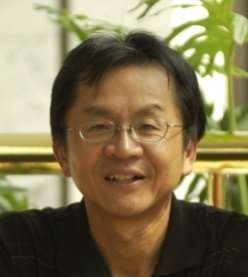
Dr. Chen is currently the Dean of the Faculty of Science and Technology, University of Macau, Macau, China and a Chair Professor of the Department of Computer and Information Science since 2010. He worked at U.S. for 23 years as a tenured professor, a department head and associate dean in two different universities.
Dr. Chen’s research areas are in systems, cybernetics and computational intelligence. He is a Fellow of the IEEE and AAAS. He was the President of IEEE Systems, Man, and Cybernetics Society (SMCS) (2012-2013). Currently, he is the Editor-in-Chief of IEEE Transactions on Systems, Man, and Cybernetics: Systems (2014-). He has been an Associate Editor of many IEEE Transactions, and currently he is an Associate Editor of IEEE Trans on Fuzzy Systems, IEEE Trans on Cybernetics, and IEEE/CAA Automatica Sinica. He is the Chair of TC 9.1 Economic and Business Systems of IFAC. He is also a Fellow of CAA and Fellow of HKIE and an Academician of International Academy of Systems and Cybernetics Science (IASCYS). In addition, he is an ABET (Accreditation Board of Engineering and Technology Education, USA) Program Evaluator for Computer Engineering, Electrical Engineering, and Software Engineering programs.
Dr. Chen he received Outstanding Electrical and Computer Engineering Award in 2016 from his alma mater, Purdue University, West Lafayette, where he received his Ph.D. degree in 1988, after he received his M.S. degree in electrical engineering from the University of Michigan, Ann Arbor, in 1985.
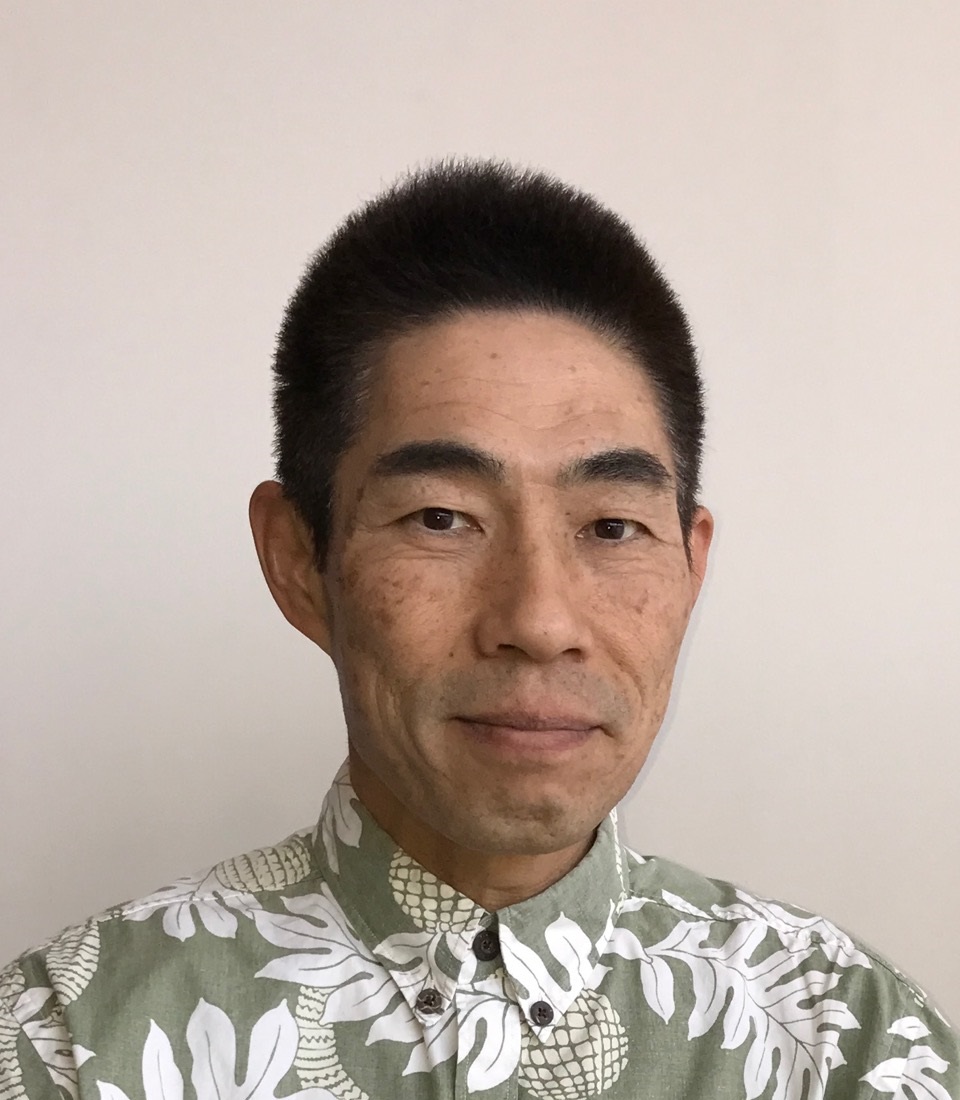
Kenji Doya took BS in 1984, MS in 1986, and Ph.D. in 1991 at U. Tokyo. He became a research associate at U. Tokyo in 1986, U. C. San Diego in 1991, and Salk Institute in 1993. He joined Advanced Telecommunications Research International (ATR) in 1994 and became the head of Computational Neurobiology Department, ATR Computational Neuroscience Laboratories in 2003. In 2004, he was appointed as the Principal Investigator of Neural Computation Unit, Okinawa Institute of Science and Technology (OIST) and started Okinawa Computational Neuroscience Course (OCNC) as the chief organizer. As OIST established itself as a graduate university in 2011, he became a Professor and served as the Vice Provost for Research. He serves as the Co-Editor in Chief of Neural Networks since 2008 and a board member of Japanese Neural Network Society (JNNS) and Japan Neuroscience Society (JNSS). He served as the Program Co-Chair of International Conference on Neural Information Processing (ICONIP) 2007 and 2016, the Program Chair of JNSS meeting in 2010, and the General Chair of JNNS meeting in 2011. He received Tsukahara Award and JSPS Award in 2007 and MEXT Prize for Science and Technology in 2012, and joined the College of Fellows of International Neural Network Society in 2013. He lead the MEXT project on “Prediction and Decision Making” project from 2011 to 2016 and currently leads a new MEXT project “Artificial Intelligence and Brain Science”. He is interested in understanding the functions of basal ganglia and the cortical circuit based on the theory of reinforcement learning and Bayesian inference.
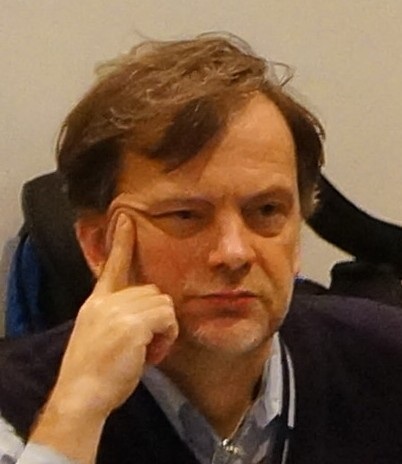
Dr. Kozma holds a Ph.D. in Physics (Delft, The Netherlands, 1992), two M.Sc. degrees (Mathematics, Budapest, Hungary, 1988; Power Engineering, Moscow, Russia, 1982). He is Professor of Mathematical Sciences and Director of the Center of Large-Scale Integration and Optimization Networks (CLION), the University of Memphis, TN, USA. He is Visiting Professor at College of Information and Computer Sciences, University of Massachusetts Amherst, where he is Director of the Biologically-Inspired Neural and Dynamical Systems (BINDS) Lab, and leads the DARPA Program on Superior Artificial Intelligence. Previous affiliations include joint appointment with the Division of Neurobiology and the EECS at UC Berkeley (1998-2000), and visiting positions at NASA/JPL, Sarnoff Co., Princeton, NJ; Lawrence Berkeley Laboratory (LBL); and AFRL WPAFB, Dayton, OH. He has been Associate Professor at Tohoku University, Sendai, Japan, Lecturer at Otago University, Dunedin, New Zealand (. worked as Research Fellow at the Hungarian Academy of Sciences, Budapest, Hungary. His research is focused on computational neurodynamics, large-scale brain networks, and applying biologically motivated and cognitive principles for the development of intelligent systems. Dr. Kozma has published 8 books, 350+ papers, and 2 patents. His most recent book has been co-authored by Walter J. Freeman III on “Cognitive Phase Transitions in the Cerebral Cortex - Enhancing the Neuron Doctrine by Modeling Neural Fields,” Springer, Germany (2016). Dr. Kozma’s research has been supported by NSF, NASA, JPL, AFRL, AFOSR, DARPA, FedEx, and by other agencies.
Dr. Kozma is Fellow of IEEE and Fellow of the International Neural Network Society (INNS). He is President (2017-2018) of INNS, and serves on the Governing Board of IEEE Systems, Man, and Cybernetics Society (2016-2018). He has served on the AdCom of the IEEE Computational Intelligence Society (2009-2012) and the Board of Governors of the International Neural Network Society (2007-2012). He has been General Chair of IJCNN2009, Atlanta, USA. He is Associate Editor of Neural Networks, Neurocomputing, Cognitive Systems Research, and Cognitive Neurodynamics. Dr. Kozma is the recipient of “Gabor Award” of the International Neural Network Society (2011); the “Alumni Association Distinguished Research Achievement Award” (2010); he has been a “National Research Council (NRC) Senior Fellow” (2006-2008).
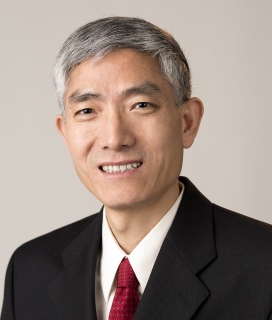
Deliang Wang received the B.S. and M.S. degrees from Peking (Beijing) University, Beijing, China, in 1983 and 1986, respectively, and the Ph.D. degree from the University of Southern California, Los Angeles, CA, USA, in 1991, all in computer science. He was with the Institute of Computing Technology, Academia Sinica, Beijing, from 1986 to 1987. He has been with the Department of Computer Science and Engineering and the Center for Cognitive and Brain Sciences with The Ohio State University, Columbus, OH, USA, since 1991, where he is currently a Professor. He has been a Visiting Scholar with Harvard University, Oticon A/S (Denmark), Starkey Hearing Technologies, and Northwestern Polytechnical University (China). Dr. Wang’s research interests include machine perception and neurodynamics. Among his recognitions are the Office of Naval Research Young Investigator Award in 1996, the 2005 Outstanding Paper Award from the IEEE Transactions on Neurak Networks, and the 2008
Helmholtz Award from the International Neural Network Society. In 2014, he was named University Distinguished Scholar by Ohio State University. He is the Co-Editor-in-Chief of Neural Networks.

Jun Wang received the B.S. degree in electrical engineering and the M.S. degree in systems engineering from the Dalian University of Technology, Dalian, China, in 1982 and 1985, respectively, and the Ph.D. degree in systems engineering from Case Western Reserve University, Cleveland, OH, USA, in 1991. Jun Wang is a Chair Professor of Computational Intelligence in the Department of Computer Science at City University of Hong Kong. Prior to this position, he held various academic positions at Dalian University of Technology, Case Western Reserve University, University of North Dakota, and Chinese University of Hong Kong. He also held various short-term or part-time visiting positions at the U.S. Air Force Armstrong Laboratory, Dayton, OH, USA, in 1995; RIKEN Brain Science Institute, Tokyo, in 2001, the Universite Catholique de Louvain, Louvain-la-Neuve, Belgium, in 2001, the Chinese Academy of Sciences, Beijing, China, in 2002, the Huazhong University of Science and Technology, Wuhan, China, from 2006 to 2007, Shanghai Jiao Tong University, Shanghai, China, as a Cheung Kong Chair Professor from 2008 to 2011, and the Dalian University of Technology, as a National Thousand-Talent Chair Professor, since 2011. His current research interests include neural networks and their applications. Prof. Wang was the recipient of the Research Excellence Award from the Chinese University of Hong Kong for 2008–2009, two Natural Science Awards (first class), respectively, from Shanghai Municipal Government in 2009 and the Ministry of Education of China in 2011, the Outstanding Achievement Award from the Asia Pacific Neural Network Assembly, the IEEE Transactions on Neural Networks Outstanding Paper Award in 2011, and the Neural Networks Pioneer Award in 2014 from the IEEE Computational Intelligence Society. He has been an Editor-in-Chief of the IEEE Transactions on Cybernetics since 2014 and served as an Associate Editor of the journal and its predecessor from 2003 to 2013. He was an Editorial Board Member of Neural Networks from 2012 to 2014. He also served as an Associate Editor of the IEEE Transactions on Neural Networks from 1999 to 2009 and the IEEE Transactions ON Systems, Man, and Cybernetics—Part C from 2002 to 2005, and an Editorial Advisory Board Member of the International Journal of Neural Systems from 2006 to 2012. He was a Guest Editor of Special Issues of the European Journal of Operational Research in 1996, the International Journal of Neural Systems in 2007, and Neurocomputing in 2008. He served as the President of the Asia Pacific Neural Network Assembly in 2006, the General Chair of the 13th International Conference on Neural Information Processing in 2006 and the IEEE World Congress on Computational Intelligence in 2008, and a Program Chair of the IEEE International Conference on Systems, Man, and Cybernetics in 2012. He has also served on several committees such as the IEEE Fellows Committee. He was an IEEE Computational Intelligence Society Distinguished Lecturer from 2010 to 2012 and 2014 to 2016.Jun Wang is the Chair Professor Computational Intelligence in the Department of Computer Science at City University of Hong Kong. Prior to this position, he held various academic positions at Dalian University of Technology, Case Western Reserve University, University of North Dakota, and the Chinese University of Hong Kong. He also held various short-term visiting positions at USAF Armstrong Laboratory, RIKEN Brain Science Institute, Dalian University of Technology, Huazhong University of Science and Technology, and Shanghai Jiao Tong University (Changjiang Chair Professor). He received a B.S. degree in electrical engineering and an M.S. degree in systems engineering from Dalian University of Technology and his Ph.D. degree in systems engineering from Case Western Reserve University. His current research interests include neural networks and their applications. He published over 200 journal papers, 15 book chapters, 11 edited books, and numerous conference papers in these areas. He is the Editor-in-Chief of the IEEE Transactions on Cybernetics. He also served as an Associate Editor of the IEEE Transactions on Neural Networks (1999-2009), IEEE Transactions on Cybernetics and its predecessor (2003-2013), and IEEE Transactions on Systems, Man, and Cybernetics – Part C (2002–2005), as a member of the editorial board of Neural Networks (2012-2014), editorial advisory board of International Journal of Neural Systems (2006-2013). He was an organizer of several international conferences such as the General Chair of the 13th International Conference on Neural Information Processing (2006) and the 2008 IEEE World Congress on Computational Intelligence, and a Program Chair of the IEEE International Conference on Systems, Man, and Cybernetics (2012). He is an IEEE Fellow, IAPR Fellow, and an IEEE Systems, Man and Cybernetics Society Distinguished Lecturer (2017-2018), and was an IEEE Computational Intelligence Society Distinguished Lecturer (2010-2012, 2014-2016). In addition, he served as President of Asia Pacific Neural Network Assembly (APNNA) in 2006 and many organizations such as IEEE Fellow Committee; IEEE Computational Intelligence Society Awards Committee; IEEE Systems, Man, and Cybernetics Society Board of Governors, He is a recipient of an IEEE Transactions on Neural Networks Outstanding Paper Award and APNNA Outstanding Achievement Award in 2011, Neural Networks Pioneer Award from IEEE Computational Intelligence Society in 2014, among other distinctions.
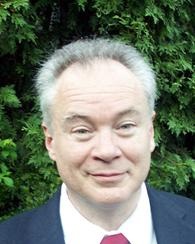
Paul J. Werbos received the B.A., M.Sc., and S.M. degrees in mathematical physics, international political economy, and economics from Harvard University, Cambridge, MA, and the London School of Economics, UK, in 1967,1968, and 1969, respectively, and the Ph.D. degree in applied mathematics from Harvard University. He is currently the Program Director for computational intelligence with the National Science Foundation, Arlington, VA, and seeks more proposals in that area. In his 1967 paper in Cybernetica, he first proposed the idea of approximating dynamic programming as a way to improve reinforcement learning, which is the key theme of the new book
Handbook of Learning and Approximate Dynamic Programming (Wiley-IEEE Press, 2004). He is also best known for his 1974 Harvard University Ph.D. thesis, which first described the process of training artificial neural networks through backpropagation of errors.
Dr. Werbos represents the Computational Intelligence Society on the IEEE-USA Energy Policy Committee and serves on the governing boards of International Neural Network Society, the IEEE Industrial Electronics Society, and the Millennium Project of the United Nations University, Tokyo, Japan. He was the recipient of the IEEE Neural Net Pioneer Award for the original invention of backpropagation.
Invited Lectures of ICONIP 2017
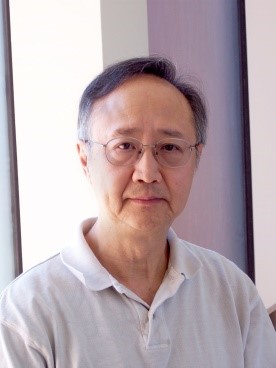
James Ting-Ho Lo is a Professor in the Department of Mathematics and Statistics of the University of Maryland Baltimore County. He received the BS degree from the National Taiwan University and the Ph.D. degree from the University of Southern California, and was a Postdoctoral Research Associate at Stanford and Harvard University. His research interests have included optimal filtering, system control and identification, active noise and vibration control, and machine learning. In 1992, he solved the long-standing notorious problem of optimal nonlinear filtering in its most general setting and obtained a best paper award. Subsequently, he conceived and developed adaptive neural networks with long- and short-term memories, accommodative neural network for adaptive processing without online processor adjustment, and robust/adaptive neural networks with a continuous spectrum of robustness; which constitute an effective systematic general approach to robust or/and adaptive processing for system control/identification/estimation and signal processing. He has been developing a convexification method for avoiding nonglobal minima in data fitting (e.g., training deep neural networks and estimating regression models), which is ready for application and is nearing a complete solution of the long-standing notorious "local minimum problem", a main obstacle in data fitting. In recent years, Dr. Lo has also been developing a low-order model of biological neural networks. The model comprises biologically plausible models of axonal/dendritic trees, synapses, spiking/nonspiking somas, unsupervised/supervised learning mechanisms, a maximal generalization scheme, and feedbacks with different delay duration; which integrate into a biologically plausible learning/retrieving algorithm and answer numerous fundamental questions in neuroscience.

Haibo He is the Robert Haas Endowed Chair Professor and the Director of the Computational
Intelligence and Self-Adaptive (CISA) Laboratory at the University of Rhode Island, Kingston, RI,
USA. He has published one sole-author book (Wiley), edited 1 book (Wiley-IEEE) and 6
conference proceedings (Springer), and authored/co-authors over 260 peer-reviewed journal
and conference papers, including several highly-cited papers and best papers.
He has served the IEEE Computational Intelligence Society (CIS) at various capacities, including
Chair of IEEE CIS Emergent Technologies Technical Committee (ETTC) (2015) and Chair of
IEEE CIS Neural Networks Technical Committee (NNTC) (2013 and 2014). He was the General
Chair of 2014 IEEE Symposium Series on Computational Intelligence (IEEE SSCI’14), Technical
Program Co-Chair of 2015 International Joint Conference on Neural Networks (IJCNN’15),
among others. Currently, He is the Editor-in-Chief of IEEE Transactions on Neural Networks
and Learning Systems.
He was a recipient of the IEEE International Conference on Communications (IEEE ICC) “Best
Paper Award” (2014), IEEE CIS “Outstanding Early Career Award” (2014), National Science
Foundation “Faculty Early Career Development (CAREER) Award” (2011), Providence Business
News (PBN) “Rising Star Innovator” Award (2011), and “Best Master Thesis Award” of Hubei
Province, China (2002).











